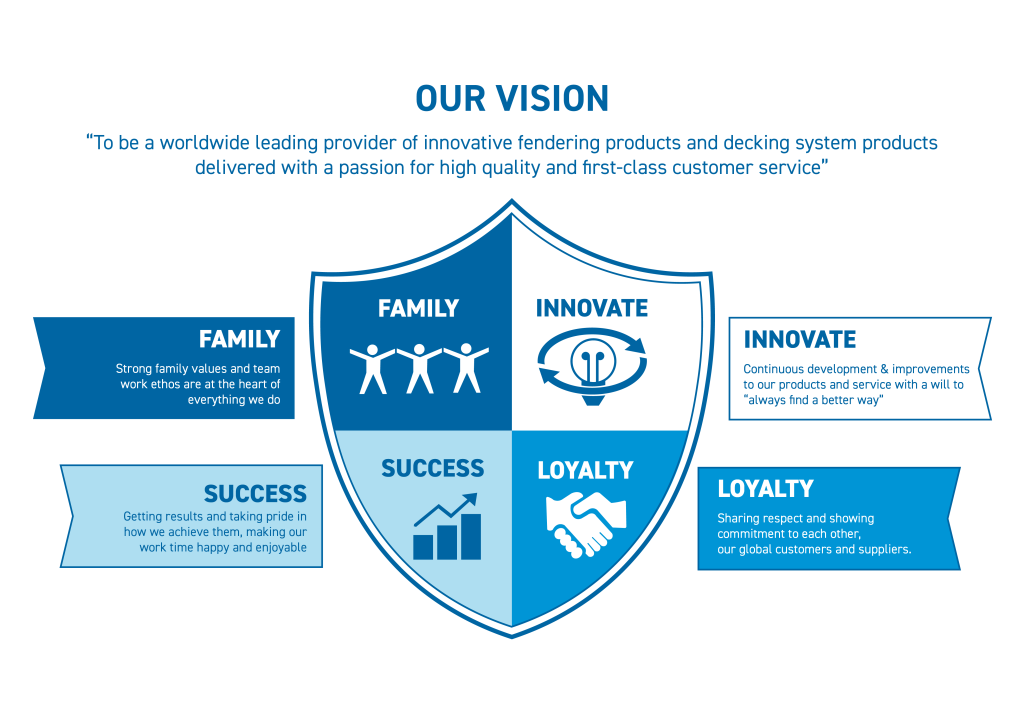News
The Vision, Values and the Team
With Wilks in its 50th year, it is time to look back at the core values that make Wilks products market-leading in marine fendering innovation. The vision driving Wilks from day one have been based on the key values of family, innovation, loyalty and success. This can be seen in the specialist local team, with strong connections between team members and the wider community. The culture of respect and trust between the team encourages creativity and innovation in all. Whilst the loyalty by team members provides invaluable experience and knowledge to be shared with newcomers. All of which leads to the success of Wilks products.

Fresh Perspectives and Energies
Recently, there has been an influx of new team members who have started to develop, set, extrude, process and pack Wilks products. With varying experiences prior to joining, but all with matching enthusiasm to learn what their role entails. These team members bring fresh ideas and introduce processes and methods that can improve the product as a whole. This enables the production facility to innovate and keep current with industry trends.
Wisdom in Long-Term Commitment
The team behind Wilks is lucky to also have members who have been here since the beginning of Wilks’ production. For example, Derek Shakespeare, a warehouse operator with 45 years experience, sales operator Debbie Hutton with 40 years, sales operator Charlotte O’Brien with 29 years, and production setters Mark Chaplin and Chris Turner with 18 years experience. With so many more having made Wilks products for over a decade. This experience allows for expertise that only time can bring – a true understanding and respect for the values, the product evolution and the products themselves. This knowledge is invaluable to the Wilks team and ensures the products are of the highest quality.
The Exchange of Knowledge
With 50 years behind the product, there are some processes and methods that have been perfected and expertly conducted for years. With such a highly specialised process at every stage, it needs a specialist team behind it. So, it is imperative that the team is well-versed in the products’ history and development. One important way that this is understood is through collaboration between new team members and long-serving team members. This has lead to informal mentor relationships being established.
This combination of new and long-term employees enables individuals to learn from each other’s experiences. This can develop into mutual benefits for both new and longstanding team members. Newcomers can provide valuable insights and fresh ideas, while long-term team members allow for the Wilks’ legacy and the specialist processes to continue. Having a dynamic blend of both groups allows these experiences to be shared and everyone can grow professionally and personally. This blend and exchange of knowledge is what many teams around the world aspire to have. As Lew Platt, former chief executive of Hewlett-Packard (HP) once stated:
“If only HP knew what HP knows, we would be three times more productive.”
Cultivating a Team Culture
The experience of sharing information is vital, this allows us to create room and opportunities for integration, collaboration, and socialisation. For example, there are many occasions for this to occur from internal fantasy football leagues to charity events such as the Macmillan Coffee Morning to the annual summer party. Where everyone, regardless of department, can socialise. This has helped to foster social inclusivity and enables valuable knowledge to be shared.
In short, having a dynamic blend of experienced and newly hired team members whilst fostering a culture of collaboration and integration has resulted in a high-performing and successful team. This really highlights that sharing knowledge, experiences, and ideas can benefit any organisation. Through exploring team relationships, it can be seen that Wilks’ core values allow for a culture of trust, respect, and collaboration. All of which are essential to fostering a productive and successful team environment.